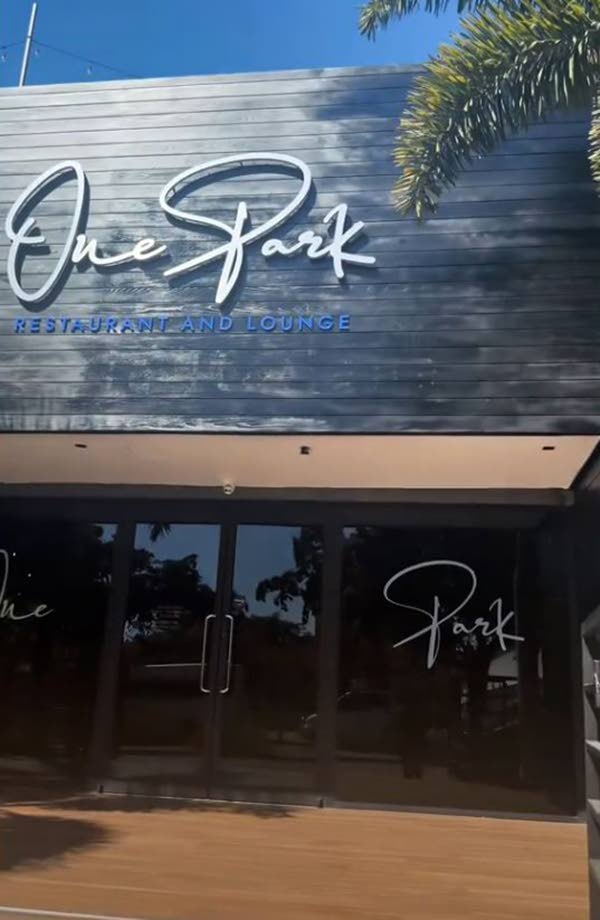18th Street from Halsted to Ashland. Roughly a mile’s distance in walkable Pilsen. All styles of art line the buildings, doors and businesses here — cartoony murals, motifs of Indigenous art, portraits of community faces, stylized writing in English, Spanish and Arabic.
There are taquerias, tattoo shops, kitschy vintage stores, nonprofit community services, James Beard-nominated restaurants and a library named for late activist Rudy Lozano. But a change has been happening over the past five years. Pulsing through and around 18th Street like heartbeats in a central artery, there are now over a dozen independent, Latino-owned coffee stores.

Once, there was only one, Cafe Jumping Bean.When it opened in 1994, Jumping Bean was something new, providing freshly ground beans, an affordable menu of sandwiches and drinks and curated art to the corner of 18th and Bishop. Now, there’s much more competition.
The most buzzed-about is Anticonquista Café, which rehabbed a previously vacant building on 18th and Morgan and debuted March 2. A caffeinated tour of Pilsen might start on the east side, slightly off 18th Street at the vibrant La Malinche Coffee & Tea House on Halsted. There, with pink prominent and a bountiful menu, patrons sit and work and chat over sweet Cubano coffees with turkey pesto paninis.
Turn onto 18th Street and get a cardamom or panela latte from Anticonquista and take in the leather, wood, revolutionary Central American literature and coffee-roasting equipment. Near Blue Island, A Cup of Joe on 18th Street is run by the Villareal family. Its café de olla is vibrant next to the skeletal designs on the walls.
Take a detour one block to Dark Matter’s Sleep Walk Chocolateria & Cafe and get a spicy dolor de oro, which uses its Unicorn Blood espresso blend, habanero, cinnamon and honey.And then, of course, there’s Jumping Bean, where there’s always a line for affordable and extra-caffeinated options, like a “Screaming Bean,” or a choco espresso, which has four long shots of espresso, plenty of chocolate, and whipped cream.Eleazar Delgado, Jumping Bean’s founder, said he and his wife, MariCarmen Moreno, recently discussed the growth in cafes.
They see the competition as a healthy sign, and while openings might be occurring around the city, he’s seeing it happen rapidly here.“We couldn’t figure it out,” Delgado said. “Why Pilsen? Why isn’t this happening in Little Village? Why isn’t this happening in Englewood?” He brought the conversation to Jumping Bean’s staff.
Delgado had concluded there were nine cafes. The staff quickly added a few more to the list and settled on 14 from Halsted to Damen. But the core question — why has the growth been so rapid? — is still difficult to answer.
Cafes are frequently taken as a sign of a changing neighborhood: people being pushed out, new demographics, more bougie tastes. Delgado faced this criticism when he opened over 30 years ago, but eventually Jumping Bean became an essential part of the area. Now, the new cafes, the overwhelming majority of which are Latino-owned if not Pilsen originals, encounter similar comments, alongside excitement for new, fresh food options.
A changing PilsenIt’s not the first time the neighborhood has changed. While it is now known as a Mexican area, many from that community recall it as a bastion of Czech-Bohemian immigrants when they arrived in the ’70s and ’80s.“We didn’t really have coffee shops back then,” said Monica Garza, a longtime Pilsen resident and nonprofit worker.
At the time, the diners and restaurants served coffee brewed from a can of Folgers. Garza never developed a taste for coffee, but Jumping Bean has been a regular fixture with her friends and adult nieces. She credits the old immigrant community for welcoming in the new one and sees another change happening now.
Cafe Jumping Bean owner Eleazar Delgado and his niece, manager Valerie Delgado, in the longtime coffeehouse at 1439 W. 18th St., in the Pilsen neighborhood on April 11, 2025.
(E. Jason Wambsgans/Chicago Tribune)Matcha is served at Cafe Jumping Bean in the Pilsen neighborhood of Chicago on April 11, 2025. (E.
Jason Wambsgans/Chicago Tribune)A crowd gathers outside Cafe Jumping Bean at 1439 W. 18th St. in the Pilsen neighborhood of Chicago on April 11, 2025.
(E. Jason Wambsgans/Chicago Tribune)Show Caption1 of 3Cafe Jumping Bean owner Eleazar Delgado and his niece, manager Valerie Delgado, in the longtime coffeehouse at 1439 W. 18th St.
, in the Pilsen neighborhood on April 11, 2025. (E. Jason Wambsgans/Chicago Tribune)ExpandWhat distinguished Jumping Bean in the ’90s was the novelty of a communal space and their understanding of coffee culture.
As 20-somethings working in bars or working-class jobs, Delgado, his brother, artist Guillermo Delgado (who designed the iconic Jumping Bean logo, their merchandise and some interior work), and their peers needed a place to spend late nights and little money. They traveled north to Lincoln Park and Evanston to visit late-night cafes there. “(In Pilsen), restaurants didn’t want you to hang out over a cup of coffee,” Delgado said.
“Every time I go back to Mexico, I’d always go to a cafe to hang out and talk.”So they brought that culture to their neighborhood. The building was previously a barber shop, and the second floor had a gorgeous skylight once used for photography.
Soon it was a new spot for community members to congregate over coffee. But it didn’t come without a little controversy. “Coffee shops and the artists are the first to get blamed,” Delgado said of neighborhood change.
His niece, Valerie Delgado, has seen all the change firsthand; she’s been working at Jumping Bean for nearly 30 years and is now a manager. Her uncle and father got her a job as a waitress as a teenager — they hoped it would keep her out of trouble. Cafe Jumping Bean in the Pilsen neighborhood of Chicago offers Choco espresso.
(E. Jason Wambsgans/Chicago Tribune)She credits the cafe with “saving” her life. When she first started, she was a “no sabo kid” — meaning she spoke broken Spanish.
Now Valerie speaks with customers in a fluid mix of Spanish and English; she learned it completely on the job.She’s optimistic that Jumping Bean and the rest of the cafes will succeed together.“I’m all for small businesses,” she said of the new cafes opening up.
“If there was a Starbucks, that would be a different story.”New waveFor a long time, it was rare to see a new cafe survive in the neighborhood. There was only Jumping Bean for decades, though a few shops opened and closed in the meantime.
Then, Dark Matter, a small Chicago chain that now has opened a New York location, opened Sleep Walk Chocolateria & Cafe in Pilsen in 2019.The storefront has been repainted in Dark Matter’s distinctly cosmic and whimsical art style. Like many of its peers in the neighborhood, the company is Mexican-owned; its beans are sourced from Central America and its chocolate, turned into bars in-house, from Mexican regions like Chiapas.
“People come in and think it’s still the bakery,” said Adriana Serrano, a barista at Sleep Walk. “They remember it back in the day being El Nopal.”That’s because one thing that remains, beyond the neighborhood memory, is the retro “El Nopal Bakery” sign that Dark Matter kept intact.
New customers might come in looking for a panaderia and come out with barrel-aged coffee beans, quality coffee-brewing equipment and little chocolate medallion samples.You won’t find that specific combination at other cafes on 18th Street. Nearly all of them use Chicago roasters like Metropolis or Intelligentsia, but they all attract and serve different clientele and offer different specialties.
People hang out at A Cup of Joe Coffeehouse at 1309 W. 18th St. in the Pilsen neighborhood of Chicago on April 11, 2025.
(E. Jason Wambsgans/Chicago Tribune)The new and old cafe owners in Pilsen acknowledge the shifting landscape and pains of rising rents and costs but note that their spaces provide a community service. Their response to critical community members is the same as Delgado’s all those years ago — they want to bring something new to the community.
At La Malinche, that’s an array of surprisingly tasty teas (or tisanes) made with real fruits that become edible as they rehydrate in the water. “I’m coming from a chaotic city, where change is the only constant,” said La Malinche’s Hector Aguirre, who immigrated from Mexico City in 2016 with his wife, Yvette Valdez. “We’ve got to keep working and look at opportunities.
Maybe this could become a thriving economic corridor.” In addition, owners and staff say they welcome the increasing diversity with excitement. On a recent Friday afternoon, Aguirre welcomed a Spanish-speaking Muslim customer with Arabic greetings.
“We’re using our coffee as a vehicle for cultura,” said Gabriela Villareal, co-owner of A Cup of Joe with her husband and son. A Cup of Joe’s first location in 2019 was near Midway where they had moved, but the family chose to open their second location in 2022 closer to their roots. A Cup of Joe Coffeehouse at 1309 W.
18th St. in the Pilsen neighborhood on April 11, 2025. (E.
Jason Wambsgans/Chicago Tribune)It’s a common story with business owners here. They grew up in tight-knit Mexican communities in Pilsen or Little Village but left the neighborhood to raise children or search for better opportunities. When they had the ability, they decided to settle back down in the place they called home.
“Pilsen has a way of sucking you back in, which is a beautiful thing,” said Marco Rodriguez of Urban Treez, which opened in 2020. “It did that to me, I think.”He, too, had left the neighborhood but returned with a business plan.
He initially considered a vape shop but he said he wanted to provide a different, better model for youth in the neighborhood.“I think intention is the key word,” Rodriguez said. “What do they want to do? That’s why I didn’t do a vape shop.
I’d sleep better knowing I’m serving smoothies.”Though many are seeing success, it’s still a difficult market. Justin Peralta started Synergy Coffee in 2024 as a pop-up but closed down recently.
A passionate coffee fan and roaster, he specialized in Chiapas-grown beans that supported a women’s farming group and refugees in Mexico. He’s not from Pilsen but chose the neighborhood for many reasons, including his wife.“She said the North Side doesn’t have any sazon, any flavor,” Peralta said.
He quickly picked up on the energy in the neighborhood. “The cultural vibe that’s (on 18th Street) right now, there’s a lot of cultures coming in..
. .There’s a lot of ways you can introduce coffee to all the different individuals.
” Peralta’s focus was on pour-overs, a more labor-intensive technique that often results in a “brighter” cup. But when his wife faced health complications, he took a break from Synergy to care for her and picked up a full-time job. He hopes to return to the neighborhood and still roasts and sells beans out of his home.
Anticonquista CaféAcross the United States, immigrants are producing new takes on cafe culture, integrating culinary, cultural and storytelling elements from home. Pilsen is no different. At the core of Anticonquista Café’s philosophy is family farming, fair prices for workers and supply chain justice.
Its beans are roasted in Chicago, but the coffee comes from co-owner Elmer Fajardo’s family farm in Guatemala. Owners Lauren Reese and Elmer Fajardo at Anticonquista at 952 W. 18th St.
in the Pilsen neighborhood on April 11, 2025. (E. Jason Wambsgans/Chicago Tribune)Anticonquista Café at 952 W.
18th St. in the Pilsen neighborhood of Chicago on April 11, 2025. (E.
Jason Wambsgans/Chicago Tribune)Coffee beans at Anticonquista Café are made with chamomile from owner Elmer Fajardo's family farm in Guatemala. (E. Jason Wambsgans/Chicago Tribune)Anticonquista Café at 952 W.
18th St. in the Pilsen neighborhood of Chicago on April 11, 2025. (E.
Jason Wambsgans/Chicago Tribune)Show Caption1 of 4Owners Lauren Reese and Elmer Fajardo at Anticonquista at 952 W. 18th St. in the Pilsen neighborhood on April 11, 2025.
(E. Jason Wambsgans/Chicago Tribune)ExpandFajardo’s teenage immigration to the United States was economically motivated; partially, he hoped to get better prices for his family and others. He recalls his father getting paid $10 for 100 pounds of coffee cherry.
From a very young age, he learned the agricultural practices behind coffee.“I think I started drinking coffee when I was 3 years old,” Fajardo said. In Chicago, he met Lauren Reese; they got married in 2018 and co-own Anticonquista.
To import Fajardo’s family beans into the country, the team at Anticonquista had to learn the intricacies of import laws, local business law and best agricultural and culinary practices. In essence, they developed their own supply chain from scratch. Fajardo and Reese personally roast their beans in a roastery in West Town.
The menu at Anticonquista’s first cafe highlights items that reflect Central American takes on food and coffee. Before the move to Pilsen, Anticonquista was primarily a mobile business. They’re gearing up again for farmer’s market season, but the cafe is now the main location where customers can find their beans.
Chamomile tea at Anticonquista Café is made with chamomile from owner Elmer Fajardo’s family farm in Guatemala, April 11, 2025. (E. Jason Wambsgans/Chicago Tribune)Fajardo and Reese were interested in opening in Pilsen because of its long history of working-class families.
“Pilsen has a really long history of activism within it,” Reese said. “There’s a history of the working class that bridges the different racial communities that have moved in and out of Pilsen.” In this first month of service, the business put up a sign discouraging video conferencing; they want to make sure vulnerable immigrant populations are not surveilled in their space.
They said they’ve been approached about holding private educational events for those groups about their civil rights.The food menu is small but inclusive, including a vegan ceviche. They’re continually looking for ways to integrate more of the farm’s produce into their menu.
Their cafe de olla has been a staple since their farmer’s market days and something Fajardo grew up with. They’ve made some modifications, including adding cardamom to the family recipe that typically includes cinnamon and cloves.Cafe de Olla with panela at Anticonquista Café at 952 W.
18th St. in the Pilsen neighborhood of Chicago, April 11, 2025. (E.
Jason Wambsgans/Chicago Tribune)“We didn’t grow it that much before,” Fajardo said. “There was always cardamom in the farm, but not that much.” This is the kind of advantage of being based in a family farm; they can add fresh ingredients to their menu from the harvest.
One thing’s for sure: Anticonquista won’t be the last new take on a Latino-owned cafe on 18th Street; recently, signs for Pink Flores Bakery & Cafe went up.“Yeah, I saw that. I actually saw that before our interview and I completely forgot about it,” said Eleazar Delgado of Jumping Bean.
“Like, another one! Oh my goodness.”But even as rents rise, gentrification displaces local residents and more cafes open, the neighborhood still stands proud in its working-class history.“Pilsen has a lot of their original people who fought to get a high school here (and) a library here,” he said.
“Pilsen fought that whole gentrification thing and we’re still fighting it to this day.” A Cup of Joe Pilsen, 1309 W. 18th St.
, 312-374-8917, a-cup-of-joe.comAnticonquista Café, 952 W. 18th St.
, 773-514-9257, anticonquistacafe.comCafe Jumping Bean, 1439 W. 18th St.
, 312-455-0019, cafe-jumping-bean.foodjoyy.comLa Malinche Coffee & Tea House, 2110 S.
Halsted St., 312-265-0337, lamalinche.cafeSleep Walk Chocolateria & Cafe, 1844 S.
Blue Island Ave., 312-600-9336, darkmattercoffee.comUrban Treez, 1649 W.
18th St., 312-526-3806, urbantreezmenu.square.
siteBig screen or home stream, takeout or dine-in, Tribune writers are here to steer you toward your next great experience. Sign up for your free weekly Eat. Watch.
Do. newsletter here..
Food

One mile, more than a dozen Latino-owned cafes: How Pilsen’s coffee culture is growing across 18th Street

Pulsing through and around 18th Street in Pilsen, there are now over a dozen independent, Latino-owned coffee stores.















